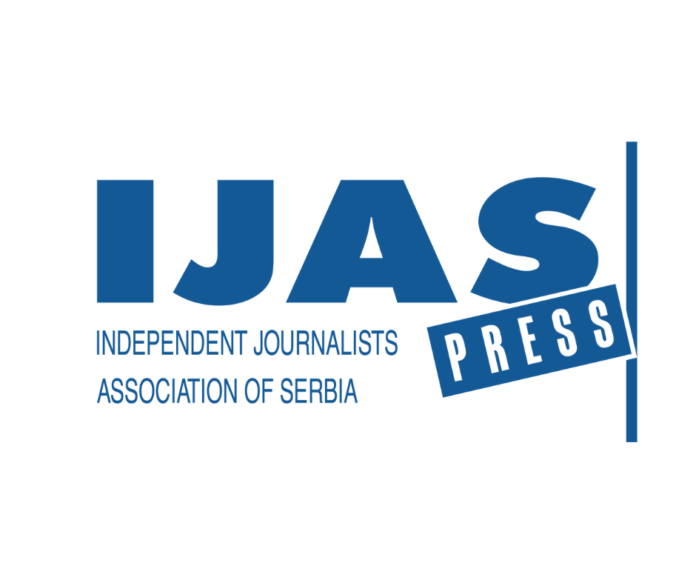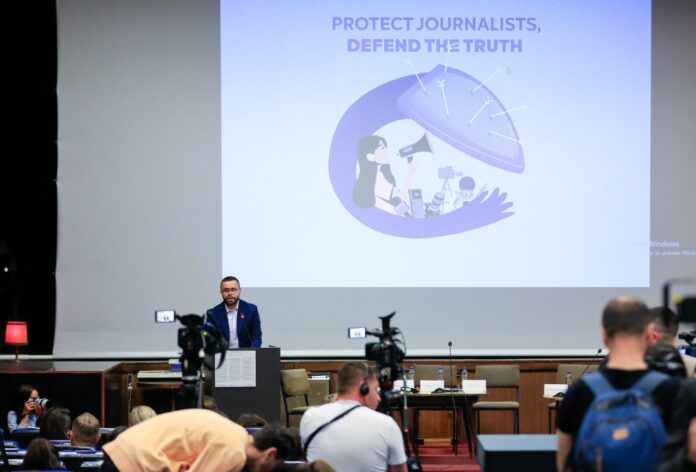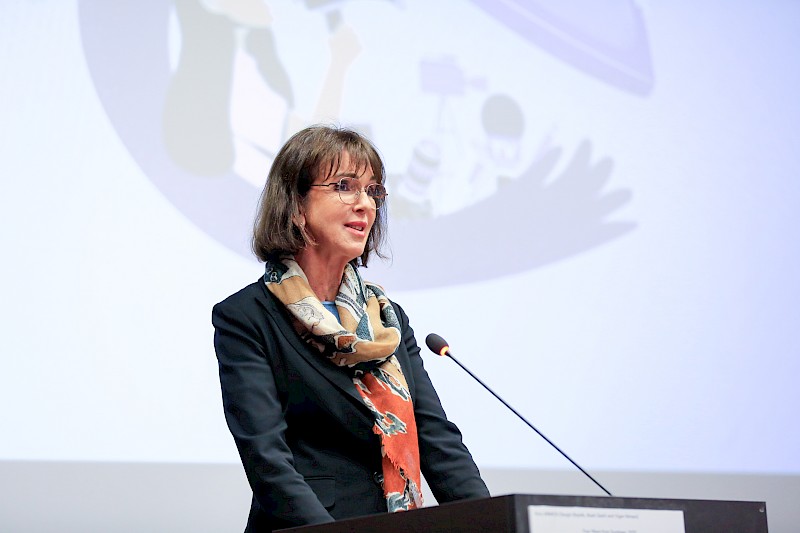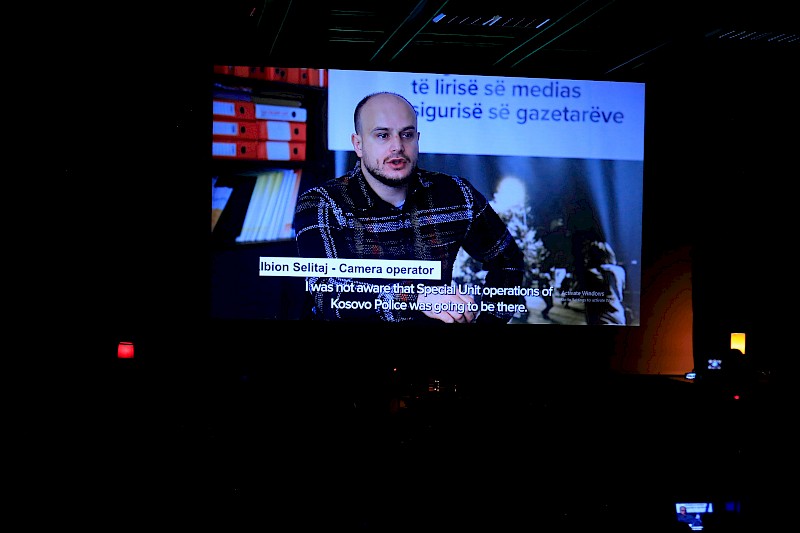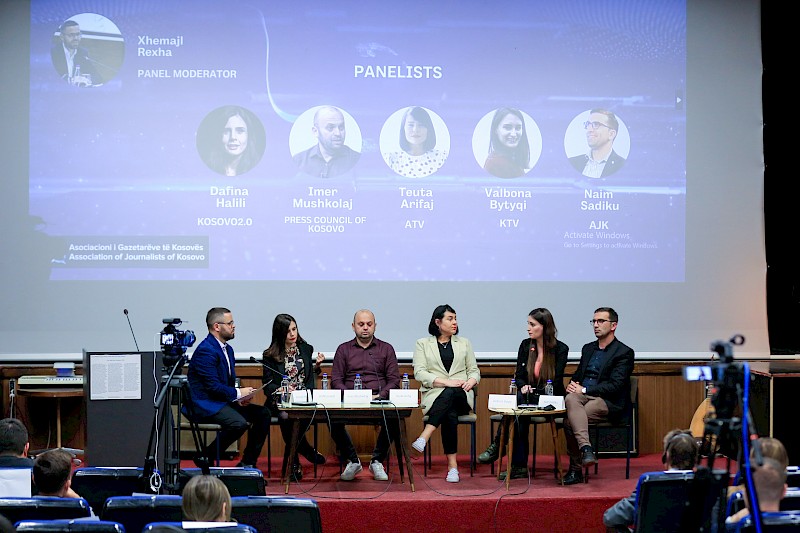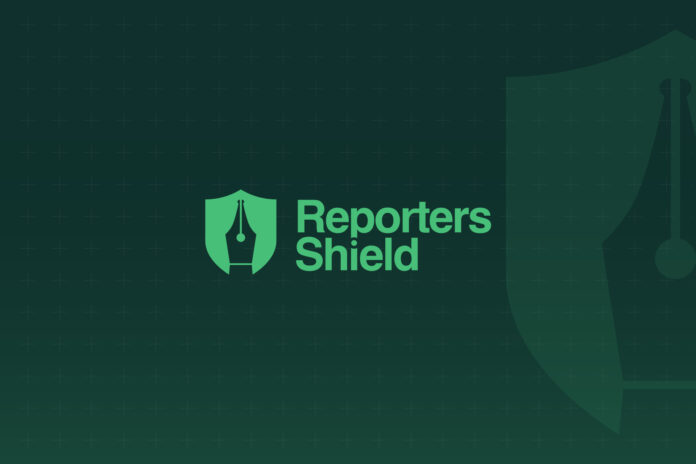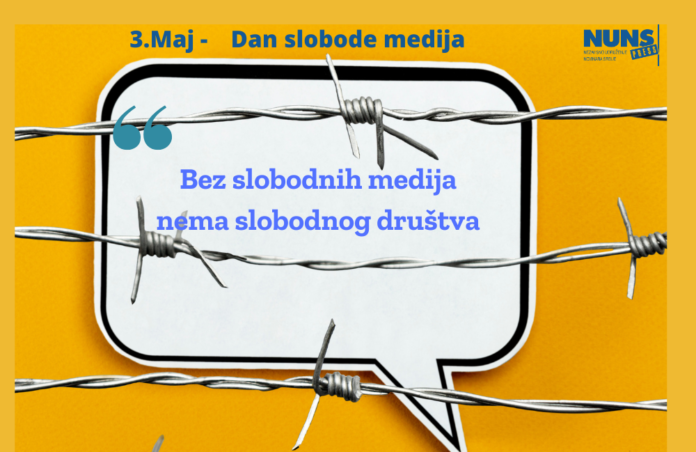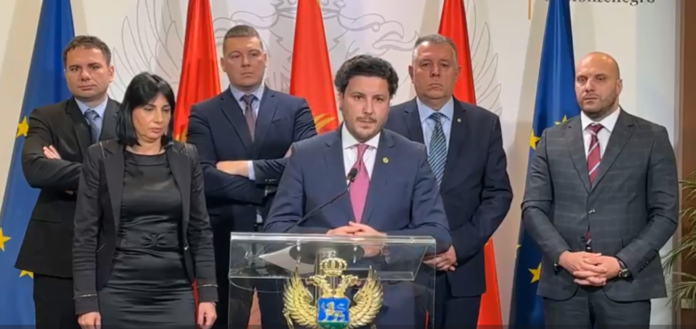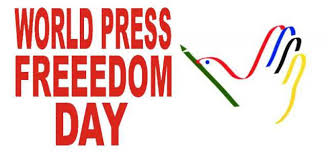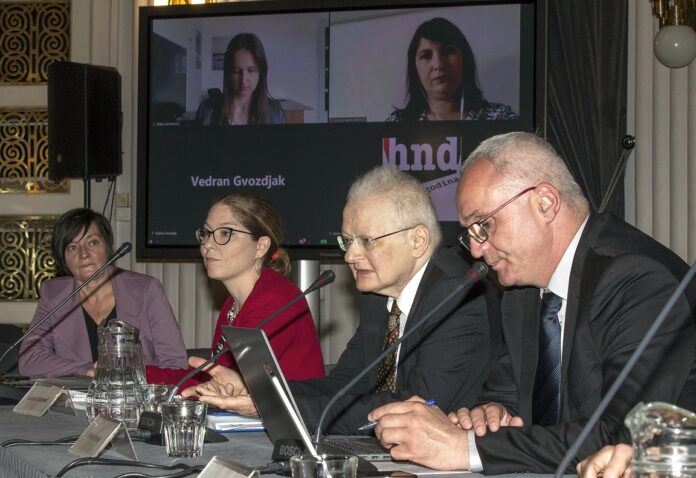One of the outlined measures in the National Plan for the Development of Culture and Media for the period from 2023 to 2027 is to ensure the protection of journalists from unfounded and malicious lawsuits with the aim of avoiding any SLAPP lawsuits and enabling every journalist to question topics of public interest. The early detection system for SLAPP lawsuits is very important and should be implemented in practice. To eliminate such lawsuits as much as possible, they should be transferred to County Courts where proceedings would be much faster, it was said, among other things, at the Journalists’ Home during the panel “SLAPP, a weapon for censorship.”
Presenting the results of the research and survey conducted by the Croatian Journalists’ Association (HND), the Secretary-General of the Society, Melisa Skender, stated that there are at least 945 active lawsuits for defamation against media and journalists in Croatia. Continuing, the panel moderator and president of the HND, Hrvoje Zovko, stated that the results indicate that judicial repression against journalists and the media in Croatia is not diminishing. “We in the HND will continue to internationalize this problem, and this time we call on the Government to decriminalize acts against reputation and honor, because everyone can find legal satisfaction in civil proceedings. Lawsuits are a means of pressure on our colleagues and serve to exhaust and censor the media,” said Zovko, who then gave the floor to the President of the Supreme Court, Radovan Dobronić, to comment on the results of the HND survey and to present any results of the survey conducted by the Supreme Court of the Republic of Croatia among court presidents, specifically how many judges have filed lawsuits against media and journalists.
Dobronić, who initiated one of the ways to combat SLAPP being the transfer of such cases to County Courts and their early detection, said that some judges simply refused to respond to SLAPP lawsuits. “The problem of SLAPP lawsuits is not only with journalists and the media but also in other areas; for example, in the market competition when a powerful economic entity sues for damages another business entity that is just entering the market,” said Dobronić. He believes that it is most important to determine whether journalistic criticism of a judge was justified, even if it was harsh, or unjustified, or malicious. He warns that it is within the description of the judicial profession for a judge to be subject to public criticism and scrutiny and added that it would be desirable for judges not to be plaintiffs. “If the criticism in the newspaper article was justified, then it is up to each judge to decide whether they can handle criticism. If they cannot handle it, we can say that they are not suited for the job,” Dobronić emphasized, adding that the question is whether filing a lawsuit related to judicial work is directly and exclusively the personal right of the judge himself.
Đuro Sessa, Honorary President of the Association of Croatian Judges and President of the European Association of Judges, sparked controversy by stating that the media are not threatened by SLAPP lawsuits, considering that the monetary amounts involved are very small. This drew a sharp response from the president of the European Federation of Journalists (EFJ) and the Croatian Journalists’ Union (SNH), Maja Sever, who emphasized that she was unpleasantly surprised by such an assessment, as there are facts where, for example, a significant blow to a small media outlet occurs when it is sued or fined for an amount of five or ten thousand euros, as we had the opportunity to witness in the cases of colleagues Davorka Blažević and Goran Gazdek. “Such an assessment is completely unacceptable, and we perceive judicial terror as a new form of censorship,” said Sever.
Jasna Vaniček-Fila, Director of the Media and Cultural Development Administration at the Ministry of Culture and Media, emphasized that the ministry is about to adopt the comprehensive medium-term document, the National Plan for the Development of Culture and Media for the period from 2023 to 2027. “One of the outlined measures in that National Plan, which aims to ensure the protection of journalists from unfounded and malicious lawsuits, is the establishment of a mechanism for the early detection and dismissal of SLAPP lawsuits. Such provisions will also be implemented in the new Media Act, which is planned to be adopted this year,” Vaniček-Fila stated, adding that the goal is to avoid any SLAPP lawsuit and enable every journalist to question topics of public interest.
Vedrana Šimundža Nikolić, State Secretary at the Ministry of Justice and Administration, when asked how the ministry arrived at the figure of 79 SLAPP lawsuits, said that the criteria for determining such lawsuits are not clear and that their early detection is very important. She added that they arrived at the figure of 79 SLAPP lawsuits purely mathematically through e-files and an information system that monitors proceedings, identifying where lawsuits and plaintiffs are repeated in cases where plaintiffs are public figures, politicians, local authorities, or judges, and similar.
Jelena Pavić Valentić, Editor-in-Chief of the portal Telegram.hr, presented several absurd examples from her own experience where they are sued for emotional distress even after publishing a correction or when they received a lawsuit for reporting on a fire with all factual elements. “It is very important which judge handles the case because we had a situation where Telegram lost because of an article we published from Jutarnji list, while Jutarnji received an acquittal,” Valentić stated.
Speaking about SLAPP lawsuits and responding to the question of how lawsuits affect daily work and how much they burden journalists and editorial offices, the editor-in-chief of 24 sata, Ivan Buča, said that the editorial staff always bear in mind the possibility of lawsuits but do not give up on stories if all the facts in the article are established and verified. Speaking about serial plaintiffs, Buča pointed out that they are easily recognizable. By seeking a correction, they are already preparing to file lawsuits, and the correction is not a guarantee that they will not sue you. They also have their price list of about 50 thousand kuna per lawsuit, and they advise each other on how much to demand, Buča stated.
Željka Gavranović, Editor-in-Chief of the portal SBplus from Slavonski Brod, spoke about her experiences, emphasizing that local media are in a particularly difficult position because lawsuits call into question the very existence of the media, and journalists and employees are existentially threatened, which also affects their private lives. “The worst thing is that you meet these people who sue you every day in such a small community, and it psychologically exhausts you and puts you in a situation where you wonder if it makes sense to continue with this job at all,” Gavranović said.
Similar experiences were shared by Vedran Gvožđak, Editor-in-Chief of Kaportal, who was sued six times for one article. “To me, it can’t be anything other than SLAPP,” Gvožđak concluded, saying that every judgment against small media is a threat that the specific media outlet will have to close down.
Tihomir Ladišić, Director of News and Programming at N1 Croatia, agreed that this represents a new form of harassment and intimidation of journalists, adding that there are many bizarre details in these lawsuits. “If there is a powerful company that not only sues you but as soon as you mention it, requests a correction, it’s clear that it’s a threat and a visible effort to get you to stop dealing with them,” said Ladišić, adding that such practices are attempts to stop you from talking or writing about anything. He also pointed out that pressures on the media are shifting from politics to the business sector and other powerful actors.
Dražen Klarić, Editor-in-Chief of Večernji list, stated four years ago that lawsuits for emotional distress have become a lucrative business, and that assertion still holds true. “Unfortunately, another situation has arisen in which publishing a correction has become evidence with which plaintiffs go to court as if it were an admission of guilt,” said Klarić, adding that for large publishers, the mere threat poses a problem because certain amounts, substantial ones, must be allocated and reserved in the budget for potential losses from lawsuits.
Journalist from Telegram.hr, Dora Kršul, found herself targeted by lawsuits from the University of Zagreb and former rector Damir Boras. She emphasized that the moment she was personally sued, not the editorial board, was very traumatic for her. “But fortunately, unlike some colleagues who work in small newsrooms, the editorial board of Telegram.hr stood behind me, treating that lawsuit as an editorial issue,” said Kršul.
Andreja Hudika, Editor-in-Chief of Index.hr, stated that dismissing lawsuits at the outset would be a good approach, but the problem is that some judges don’t even read the response to the lawsuit. “They immediately assert that Index shouldn’t have published a particular article and ask absurd questions about how we even dared to publish the article,” said Hudika.
Goran Selanec, a judge at the Constitutional Court of Croatia, emphasized that these are also malicious lawsuits and added that the figure of over 900 lawsuits is enormous, although not all are SLAPP suits. Selanec added that there is a significant number of judges at lower levels who have not accepted the existence of press freedoms and are not willing to support the standards reached at the European level when it comes to those freedoms.
Lawyer Vesna Alaburić believes that judges do not recognize the concept of public interest and do not understand that some media content must be seen in its entirety. She highlighted the need for education of judges and lawyers dealing with specific disputes, as well as journalists in carrying out their work. She noted that the program of educating judges about cases against the media and freedom of speech is actually extremely deficient.
Zlata Đurđević, head of the Department of Criminal Procedural Law at the Faculty of Law in Zagreb, pointed out that, in her opinion, we should not expect the decriminalization of offenses against honor and reputation. She added that such provisions exist in a large part of European countries, but what is worrying is that Croatia has not undergone the transition from socialism to capitalism when it comes to media freedoms, without which there is no real democracy. “When it comes to judges, they are part of the state authority and must be subject to criticism and assessments,” said Đurđević, adding that journalists do not have protection from the Croatian state.
Marijan Bitanga, a judge at the High Criminal Court of Croatia and spokesperson for the Croatian Judges Association, agreed that judges must endure public criticism, but, he added, that hasn’t reached many. “Questioning the quality of judges’ work is not only necessary but desirable. I think we need to recognize the danger that comes through lawsuits, and judges should recognize and prevent it,” said Bitanga, also emphasizing the need for better education of judges.
Đurđica Klancir, an external member of the Committee for Information, Informatization, and Media of the Croatian Parliament and a journalist at N1 Croatia, stated that SLAPP lawsuits represent a dominant pressure on journalists and media. “This is a problem that weakens the media scene in Croatia. Messages from the leaders of this country addressed to journalists and media contribute to this,” said Klancir, adding that it is an attempt to impose self-censorship on the media.
Davorka Blažević, Editor-in-Chief of Tris portal, went through a ordeal due to a dispute over the honor and reputation of Supreme Court judge Senka Klarić Baranović, to whom she had to pay 54,000 kuna. This money was ultimately collected thanks to the solidarity and assistance of colleagues and the Croatian Journalists’ Association. “That lawsuit was pure revenge, and it turned out that its goal was to earn money and materially destroy the journalist,” said Blažević.
Suzana Lepan Štefančić, a member of the Working Group of the Ministry of Culture and Media on SLAPP and a journalist at Večernji list, emphasized that it was seen in the education sessions conducted by the Ministry of Culture and Media that judges do not understand what is meant when talking about public interest and the duty of journalists towards the public interest.
Josip Antolić, editor of RTL Danas and TV magazine Potraga, stated that RTL is fortunate to have a good legal team, an external legal service, but among the 58 disputes they lead, totaling 450,000 euros, there are also bizarre lawsuits, including one for a comment on Facebook.
Tena Šimonović Einwalter, the Ombudswoman, emphasized that SLAPP is not only a problem for journalists but also for activists for the protection of human rights in general. She reminded that critical and professional journalism is necessary to effectively combat misinformation.



